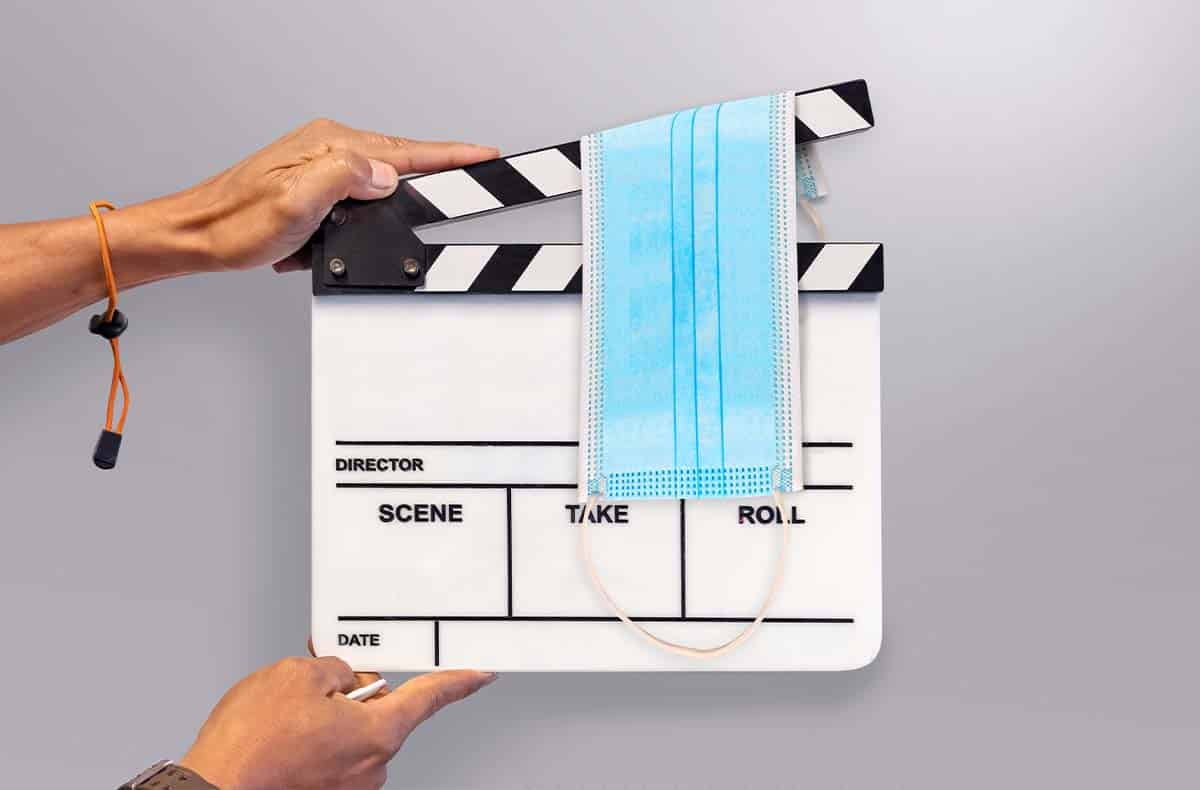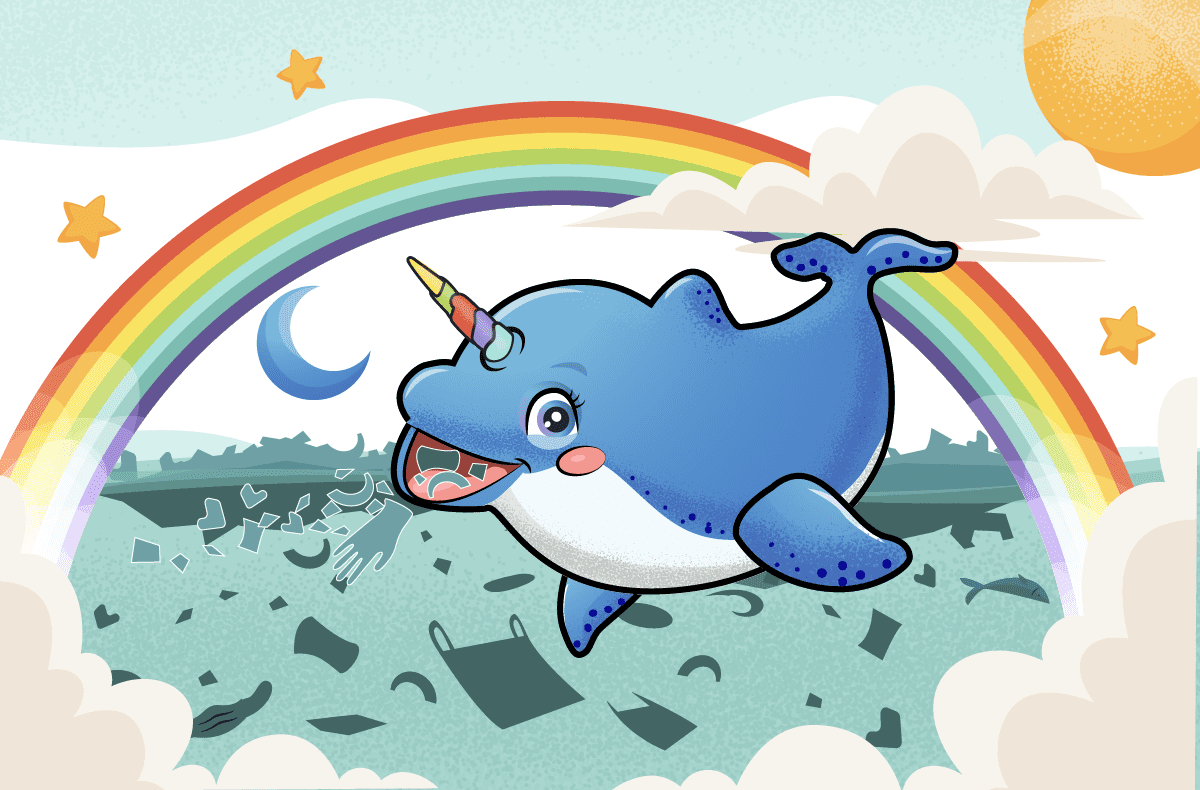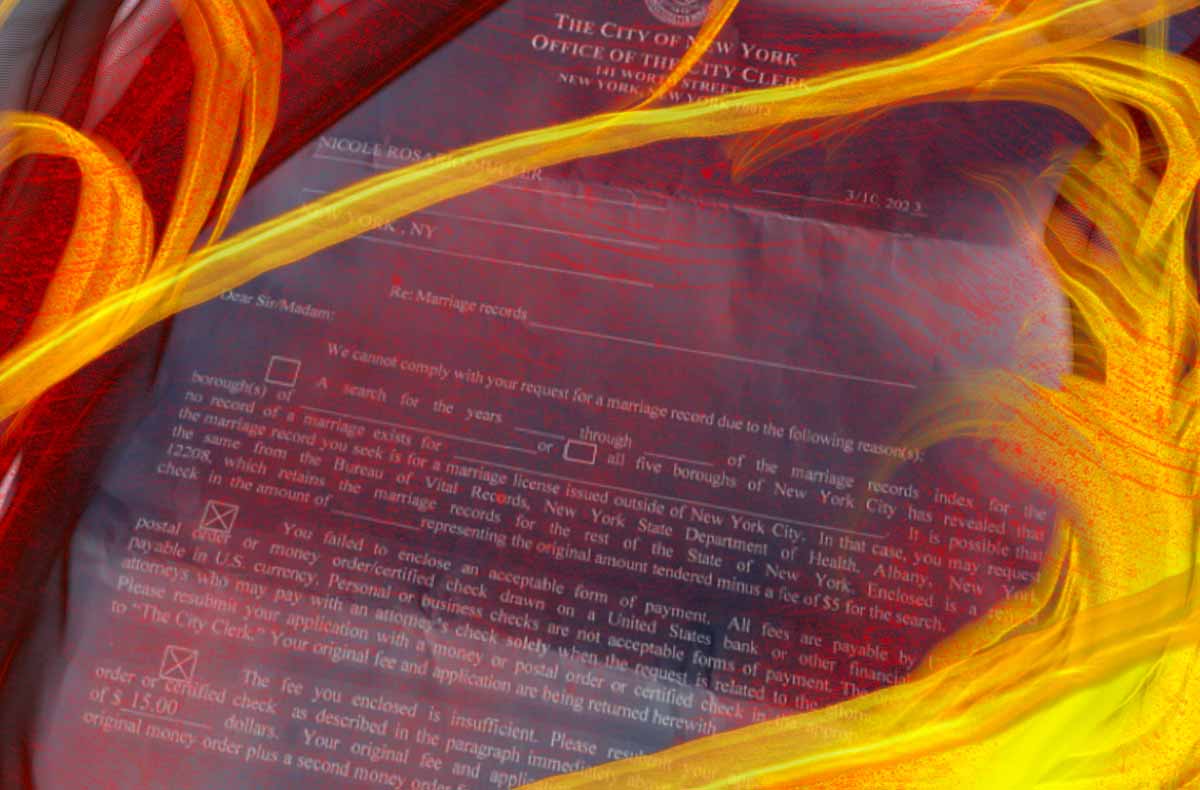
Like many of us, I’ve endured much of the pandemic through a sacred American rite: binge-watching. The streaming habits we cultivated during the early months of lockdown have endured: outside of sleeping, Americans spend most of their time watching TV, and last fall, we watched even more television than the year before.
With so many of us hungrily consuming content while potato-ing on our couches, production companies have had to figure out ways to keep churning new material out. Following each state or country’s specific guidelines often requires frequent testing, diligent masking and social distancing on set—and following these protocols has added an additional 5% to most production budgets. Whether filming a feelgood reality show like The Great British Bakeoff or a satirical period comedy-drama like The Great, production companies have had to navigate the undeniable reality of the pandemic, and the fact that we are quite far from “the before times.”
But while the crew of a show must be fully aware of the pandemic’s realness to remain compliant, the writing room is another story. In my bouts of streaming, I’ve noticed a particular divide in new content over how to handle the pandemic within the storytelling of scripted shows.
This is not an issue that reality shows or historical dramas have to grapple with (see GBB or The Great,) but watching how plots set in our present choose to navigate the pandemic has been a fascinating exercise. In my informal study of an embarrassingly high number of TV shows, I’ve seen a plethora of programs fall along a spectrum of COVID-acknowledgement, with varying levels of success.
First, you have your full lean-in pandemic reality embrace. Forget about escapist TV: this is right in the mix of living that mask life. Generally, we don’t see this much in scripted television, since 1. Everyone is sick of the pandemic and we want to forget about it with our overly-full glass of wine and 2. It takes away a whole host of traditional story devices, like running into a friend at a gathering—or essentially any other thing that happens in a room of people not on Zoom.
Although COVID fatigue kept most writers from going this full-on route, we did get a few great works, like David Tennant and Michael Sheen’s brilliant Hulu series, Staged, which was created during 2020’s lockdown. And of course I’d be remiss if I didn’t mention the bitingly funny (and Emmy-nominated) South Park episode, “The Pandemic Special,” as well as the series’ Paramount+ movies, South Park: Post Covid, and South Park: Post Covid: The Return of Covid, two titles that feel mildly triggering after the delta and omicron variants. (It’s honestly impressive that, after decades and a globally traumatizing pandemic that would curb anyone’s artistic appetite, Trey Parker and Matt Stone still have a solid grasp on how to skewer the zeitgeist.)
The bulk of present-day shows fall into a second category of pandemic awareness, where they acknowledge the existence of COVID, but try to usher it past the storytelling as quickly as possible, like airing out a fart from a windowless conference room. We saw a lot of this when procedural dramas like Law and Order: SVU were able to recommence filming. Given that the show bills its plotlines as “ripped from the headlines,” it seemed obvious that they’d simply have to lean into COVID, but it was hardly cinéma vérité. Torn between their pseudo-allegiance to being a gritty New York cop-and-lawyer drama and the fact that no one wants their actors’ faces covered in a mask for 45 minutes, the show landed on an uneasy compromise, where detectives would enter a scene masked and immediately take it off when they started speaking. Indoors. Both in their offices and when visiting victims or suspects.
It was completely confounding, since this is, in fact, the opposite of what real-life New Yorkers were instructed to do during this pre-vaccine time: mask up when inside, but when distanced outdoors, feel free to remove it. While I sympathize with the fact that it would truly suck to film multiple episodes with 80% of the scenes masked up, it just felt like it was undermining the truth it purported to represent. Either set the scenes outside, where masks can be off, or just deal with it. (To be fair, one might argue that it actually is realistic to show the NYPD not wearing masks, given that they’re repeatedly making the news for refusing to do so. But that’s hardly the heroic tale SVU is going for.)
The third type of COVID representation I’ve encountered is of the “look over there!” variety. Essentially, a character mentions something that might be alluding to the pandemic, then the story immediately pivots, trying to distract the audience with something shiny. Two HBO productions in particular come to mind: the final season of Insecure and the new season of the Sex And The City menopause edition, And Just Like That…. Similarly to SVU, And Just Like That… is a definitively New York show—I mean, it’s the city where all the sex happens. For some reason, the writers of And Just Like That decided to have the characters kick off the pilot episode by referring to the pandemic as being “over,” and how they were all getting used to hugs again (“Remember those?!”)
Of course, the show started filming in New York during late spring 2021, when we were all dizzy with the promise that vaccines would revive our long-dormant social lives. But even though the writers—like the rest of us—didn’t have the foresight to see the delta variant coming, the show neglected to reflect the protocols that remained in place in the city, and certainly made no efforts to reflect reality once it became clear that we weren’t out of the water. This is pretty ironic, considering that, when interviewed by Vanity Fair, Sarah Jessica Parker commented that COVID would “obviously be part of the storyline, because that’s the city [these characters] live in.” Yes, the characters addressed COVID… in the first episode. The rest of the time it’s barely an afterthought. I happened to start watching the show as omicron was first hitting New York, so it felt incredibly out of touch to see the gals waltz around the city sans vaccination cards, while nearby lines for rapid tests at clinics were curling around city blocks. There’s no hard, fast rule that they had to acknowledge the pandemic at all: we could just live in the fantasy future where it really is over. But the fact is, right now… it’s not. Hedging their bets by acknowledging COVID only to ignore its staying power in the real New York was shoddy storytelling.
Similarly, Insecure made the odd choice of referring to “all that’s been going on” vaguely in the first episode of its final season, but made absolutely no attempts at actually showing the lived reality of Californians dealing with COVID before skipping ahead to a pandemic-free future. Watching Issa exit the San Francisco airport and enter a cab maskless sent a germaphobic shudder down my spine, and seeing her gather with entirely unmasked alumni for her 10th reunion at Stanford rang even more untrue. (While Stanford did have an alumni weekend in October 2021 after canceling reunions the previous year, The Stanford Daily reported that they required visitors to complete a health check, provide proof of vaccination, “and masks were mandatory both indoors and outdoors when within six feet of others.”)
Of course, Insecure has plenty of moments that are far from realistic—Issa regularly enacts wild fantasies and converses with her mirror-self, who talks back. But why even bother alluding to the existence of a pandemic if you’re not going to try to reflect the world as it exists right now? There are no major plot points in the show that require naming the year, and nothing makes it necessary to set the show during COVID, as they jump forward in time for the rest of the season almost immediately. So why not just start from there in the first place? To show pandemic-era SoCal as completely mask-free seems irresponsible: even just this January, Governor Newsom had to call in the national guard to assist with testing, as demand was so overwhelming. One of the best parts of Insecure is how it celebrates lesser-represented parts of LA; the neighborhoods so many call home and the lived experiences within them, so it feels strange to pretend something that impacted Angelenos’ daily lives so drastically…didn’t. Insecure had an otherwise excellent final season—if they’d simply started without any vague pandemic allusions, it would have been flawless.
Unsurprisingly, the strongest and most successful pandemic-era storytelling in television is that which unequivocally chooses to skirt the subject entirely. The massively addicting Showtime series, Yellowjackets, for instance, jumps back and forth between 1996 and 2021, where there’s not a COVID test in sight. Does that take away from the story? Absolutely not. Does the audience wonder, “Hey, where’s her mask, how come they’re not distancing?” Nope, we just want to get to the bottom of these women’s fascinating mystery. Another shining example is HBO’s Euphoria, which had to cancel filming for their second season when the pandemic first struck, and pivoted to making two stopgap special episodes before they could safely resume. These episodes and the new season picked up where they left off without missing a beat. There’s no need to add COVID into the mix…plus it’d be way harder for these teens to have crazy amounts of sex and do crazy amounts of drugs if their school had gone remote.
This, in my opinion, is the strongest choice a writer can make: if you can’t be fully in, then be fully out: don’t awkwardly hedge. If you’re not going to use the pandemic era as part of your world building, then just build a world without it in the first place. Otherwise you’re undermining the very narrative you’ve created.
Even more importantly, it’s the writer’s responsibility to consider how the messages they’re putting forward in their work will land with their audience. If you depict a fictional world with COVID that reinforces incorrect mask usage and a blithe attitude towards this real public health issue, then you are part of the problem. It’s been hard enough to cut through all the mixed messages we’ve received from the CDC, we don’t need our entertainment to add to the confusion.
Given how impossibly hard it’s been to navigate the pandemic in the real world, creating fictional ones where we don’t have to at all is frankly a gift audiences are more than happy to receive. We’ve all had quite enough of COVID, so no one’s mad to go fully into a fantasy where it’s ceased to be.



